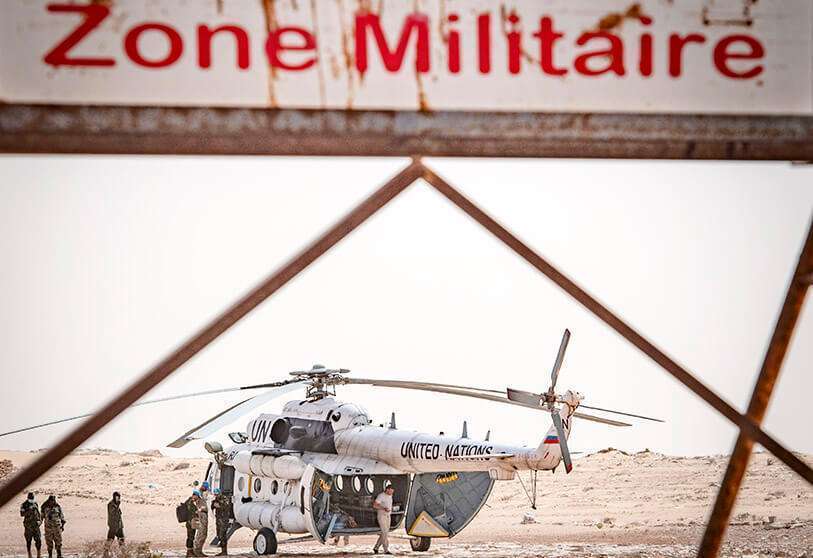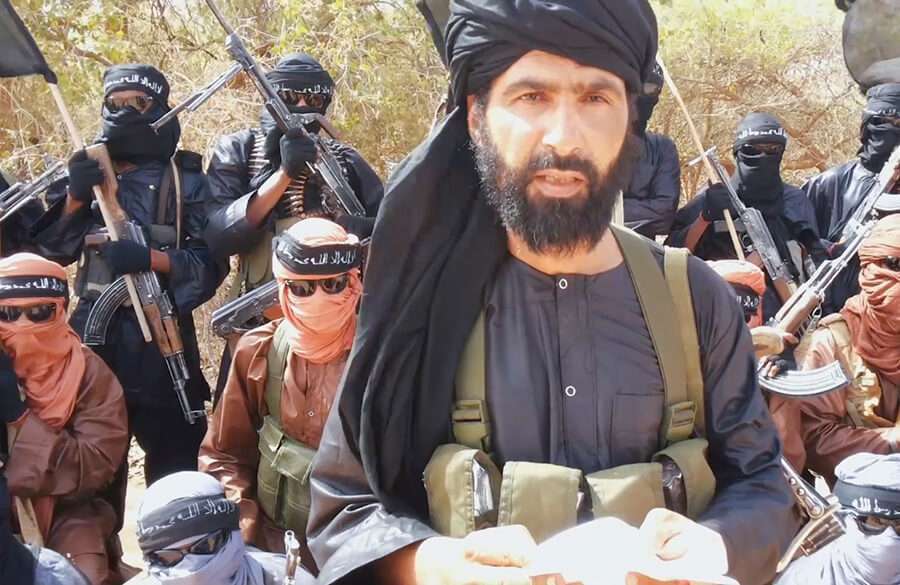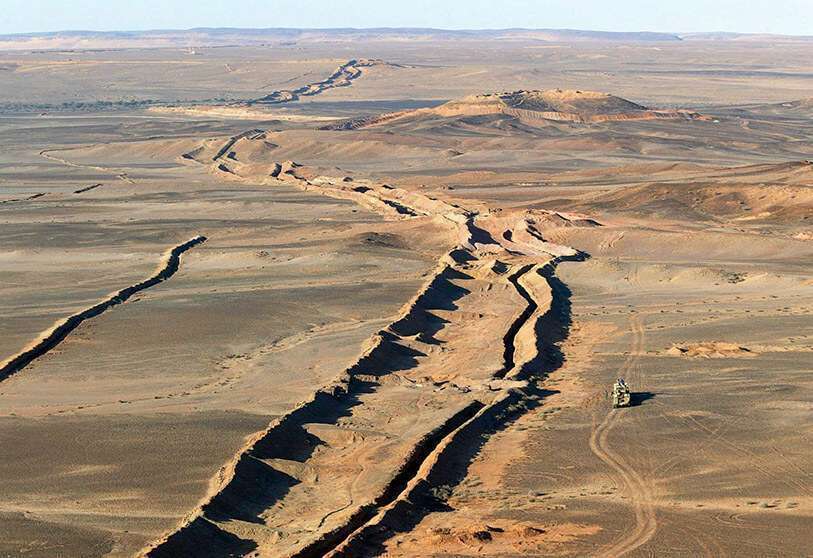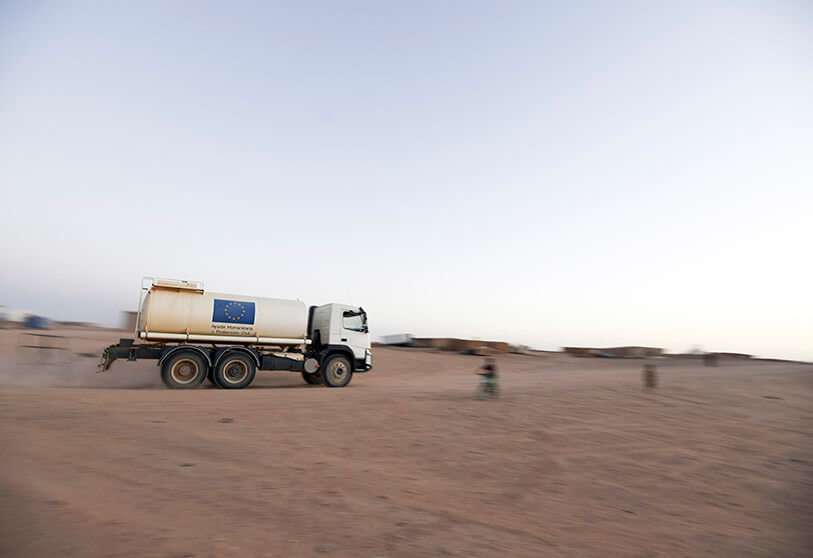El conflicto del Sáhara y la amenaza terrorista

On October 20, 2020, an escalation of tension began between the Moroccan government and the Polisario Front. On the one hand, the Moroccan Army is involved in this conflict, and since Spain left the area, it has taken advantage of it to settle and exploit the natural resources that the area possesses, among them the largest phosphate mines in the world, an enormous fishing bank, reserves of oil, gas, iron, copper and uranium, etc. On the other side is the Popular Front for the Liberation of Saguía el Hamra and Río de Oro, known as the Polisario Front, which heads the government of the self-proclaimed Sahrawi Arab Democratic Republic, which, despite lacking international recognition, has been trying to carve out a niche for itself in international geopolitics since 19761.
The origin of the conflict dates back to 1476 when a Castilian man built a fort in the area. Since then, the comings and goings of the Spanish Empire in the Sahara were constant, although it was always considered a mere transit area. In 1885, at the height of the Spanish colonial career, Spain claimed the Western Sahara, which it would not fully occupy until 1934. However, after the Second World War and its subsequent phase of decolonization, France and Spain gave independence to their protectorate from Morocco. Once they became independent, they claimed the Sahara together with Mauritania, which had recently become independent from France.

In 1960 the UN advised the decolonization of the Sahara, but General Franco did not agree. At the end of the 1960s, a Saharan movement was born that did not accept Moroccan claims and fought for its independence, thus creating the Movement for the Liberation of Saguia el Hamra and Rio de Oro. Faced with this nationalist wave, Franco's government extended its hand to the Saharawi people, considering them to be just another Spanish province; in this way, the Saharawi people acquired Spanish nationality. This did not calm the tensions and an uprising ensued that ended with 40 deaths. These events sowed the seeds for something bigger to emerge in 1973, the Polisario Front2. With this, the UN supported the holding of a referendum on self-determination for Western Sahara.
In the 1970s, the oil crisis broke out, with the Sahara being an oil-rich territory and the King of Morocco being in deep crisis, they were energetically opposed to holding such a referendum. In 1976, with the 'Green March'3 and the arrival of King Juan Carlos, Spain abandoned the territory leaving Morocco and Mauritania in almost all of Western Sahara, three years later Mauritania would cede it to Morocco.
Since then, Morocco has occupied the richer areas of Western Sahara, while the poorer areas have been controlled by the Polisario Front, which would in turn found the Sahrawi Arab Democratic Republic. However, the UN does not recognize this territory as belonging to Morocco or Western Sahara as an independent country. Western Sahara is a pending decolonization territory with an administrative authority. The authority that should administer Western Sahara for the UN is Spain, which is neither here nor expected.

After 45 years the referendum has been postponed and Morocco has been sending more and more people to Western Sahara. At present the only allies of the Saharawis are the Algerians, also Russia shows sympathy along with other South American countries and the African Union. The UN claims peace in the zone by remaining neutral, as do the European Union and Israel, who do not recognize the Saharawi government. The United States does not recognize the Saharawi Executive either, but neither does the Moroccan Administration (which they would support in any case). On the other hand, the Arab League supports Morocco.
Although a priori the conflict does not have sufficient international relevance, it does, at least as far as terrorism is concerned. It seems that there is an international actor, such as the terrorist organizations operating in the territory, which is benefiting from this war and could in the future pose a threat to Morocco, Spain, Europe and the international community.
In recent years, the Sahel has experienced a great growth in terrorist activity, which is of concern both domestically and internationally. Ten years ago, terrorism in the Sahel was a rampant terrorist phenomenon in Algeria, the leaders were Algerians and the phenomenon was spread by Arab tribes and some Tuaregs.

Today the weak states of the Sahel region face great challenges in dealing with the dangerous mix of jihadi violence, inter-communal conflicts and smuggling groups. If tensions remain in Western Sahara, terrorism could benefit from uncertainty and unrest.
In these Sahelian territories close to Western Sahara, the greatest danger is posed by the Islamic State in the Greater Sahara (ISGS). The ISGS was born out of Al-Murabitun4 (The Almoravids) which was born in 2013 by joining forces of two organizations operating in Mali's area. In 2015, a part of the aforementioned group declared its loyalty to Daesh and his leader, Adnane Abou Walid al-Sahraoui5. Such facts showed how terrorist organizations were recruiting abundantly in this quarry, which until now, despite showing a nationalist ideology, had never manifested an Islamist or jihadist ideological position.
On the other hand, the presence of Al-Qaeda in the Islamic Maghreb (AQIM) is also noteworthy. In 2006, with Ayman al-Zawahiri leading the al-Qaeda organization, the GSPC's6 membership in al-Qaeda was announced, so the terrorist group changed its name to reflect the union. Since then, AQIM has been considered one of the most dangerous groups in North Africa, having led numerous terrorist actions that have extended from the border between Mauritania and Algeria to Chad.
Both Al-Qaeda and Daesh are the two most important terrorist organizations that have promoted the rise of jihadist terrorism in the Sahel in recent years. Their respective factions, JNIM and ISGS, are the main players in the territory, each accountable to a different leader and possessing different objectives and perspectives; yet they compete with each other for expansion, even going so far as to confront each other. In this context, it is surprising that, except on a few occasions, neither Mauritania nor Morocco have been priority targets for these gangs7.
In the case of Morocco, which began to suffer a greater number of terrorist attacks in 2003, the Government was able to detect the main focuses and counter extremism based on policies of human and economic development, tougher criminal procedures, and the presence of the State in the religious sphere. In addition, Morocco has participated proactively in the various global strategies, collaborating with Spain and following the recommendations of the UN.

With respect to Mauritania, it is a State with the perfect characteristics for the increase of violent radicalism due to its social conditions of poverty, repression and corruption, in addition to being a desert terrain within the area of influence of the EIGS and AQIM. However, it has not experienced any attacks since 2011. This is due to the various measures of the government, consisting of improving the conditions of soldiers with salary increases, as well as improving their education and training. Other factors that have made this possible were the increase in its military budget and the support of the European Union and NATO, which made it possible to create Special Intervention Groups focused on rapid reaction to the actions of terrorist groups. However, there have always been conspiracies around a "non-aggression" pact between the Mauritanian government and al-Qaeda8.
Both Morocco and Mauritania have succeeded with these strategies in curbing the terrorist threat that is spreading throughout the rest of Africa, mainly in the Sahel, where other countries such as Nigeria or Mali have not achieved such an objective9.
Now that the state of the question regarding the history of Western Sahara is known, and with the attention focused on the RAN High Level Conference between the governments of Morocco and Spain – scheduled for December 17 and now proposed for February –the government of Spain must stop postponing decisions that have been its responsibility for more than 40 years of history. On the other hand, the events of the last few years in the Maghreb and the Sahel show that if the decision regarding the conflict were to be taken with a preventive perspective on terrorist matters, it would be best to advocate for Morocco. This is something that the outgoing president of the United States has already done, as he understands that his proposal for autonomy is "the only basis" for a "just and lasting" solution that guarantees "peace and prosperity" in the area.
Jacobo Salvador Micó Faus
Criminologist and Analyst in Terrorism
Bibliography and Footnotes
- Del rio Montero, A. (2020). The Sahara War: the danger of Jihadism if Morocco wins the war. Free Perspective, volume. Retrieved from: https://www.perspectivalibre.com/2020/11/21/la-guerra-del-sahara-el-peligro-del-yihadismo-si-marruecos-gana-la-guerra/
- Self-determination group.
- With the approval of the CIA and the financing of Saudi Arabia, Morocco realised the Green March: a series of civil columns that marched on the Saharawi territory guarded by 25,000 Moroccan soldiers. The UN declared itself to be against it, but the USA and France gave the go-ahead, as the Polisario Front had Algeria as an ally and Algeria was an ally of the Soviet Union.
- An armed Jihadist group from the Sahel created in August 2013 with the union of MUYAO and The Signatories with Blood led by Mojtar Belmojtar
- Nuevatribuna.es. (13 February 2020). Polisario Front denounces the association of the Saharawi cause with Jihadist terrorism [Blog post]. Retrieved from: https://www.nuevatribuna.es/articulo/global/frente-polisario-denuncia-asocie-causa-saharaui-terrorismo-yihadista/20200213173051171075.html
- Salafist Group for Preaching and Combat.
- Summers, M. (2020). Confrontation between JNIM and EIGS. Changes in Jihadist terrorism in the Sahel. IEEE, (98). Retrieved from http://www.ieee.es/Galerias/fichero/docs_opinion/2020/DIEEEO98_2020MARSUM_Sahel.pdf
- This is why, in exchange for not attacking Mauritania, the Jihadists could use "secure bases" to conceal their territory.
- Del rio Montero, A. (2020). The Sahara War: the danger of Jihadism if Morocco wins the war...op. cit.









